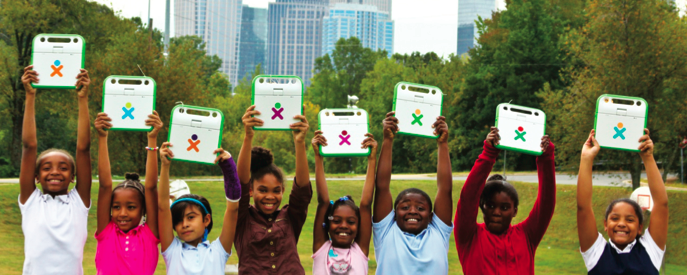Whizz Kids Hack Android!
By Laura Ivers
Ethiopian Children Astound the Pros
One Laptop Per Child (OLPC) is an organization that oversees the creation of affordable educational devices for use in the developing world. They recently completed a bold experiment to see if illiterate children, with no previous exposure to written words, could learn how to read all by themselves, through experimenting with tablets preloaded with alphabet-training games, e-books, movies, cartoons, painting applications and other programs.
Motorola Xoom tablets, which use a solar charging system, were dropped off by OLPC workers to two remote Ethiopian villages. 40 children in total, who had previously never seen printed materials, road signs or even printed packaging, were chosen for the project and the tablets were delivered in closed boxes, taped shut that included no instructions.
OLPC’s founder, Nicholas Negroponte, speaking at MIT Technology Review’s EmTech conference said, “I thought the kids would play with the boxes. Within four minutes, one kid not only opened the box, found the on-off switch … powered it up. Within five days, they were using 47 apps per child, per day. Within two weeks, they were singing ABC songs in the village, and within five months, they had hacked Android. Someone in our organization or in the Media Lab had disabled the camera, and they figured out the camera, and had hacked Android.”
Ed McNierney, OLPC’s chief technology officer elaborated further, “The kids had completely customized the desktop—so every kids’ tablet looked different. We had installed software to prevent them from doing that. And the fact they worked around it was clearly the kind of creativity, the kind of inquiry, the kind of discovery that we think is essential to learning.”
The experiment was a response to the problem that over 100 million first-grade children worldwide have no access to schooling and results from early observations on the experiment have been highly encouraging, presenting exciting new possibilities for education and learning globally.



